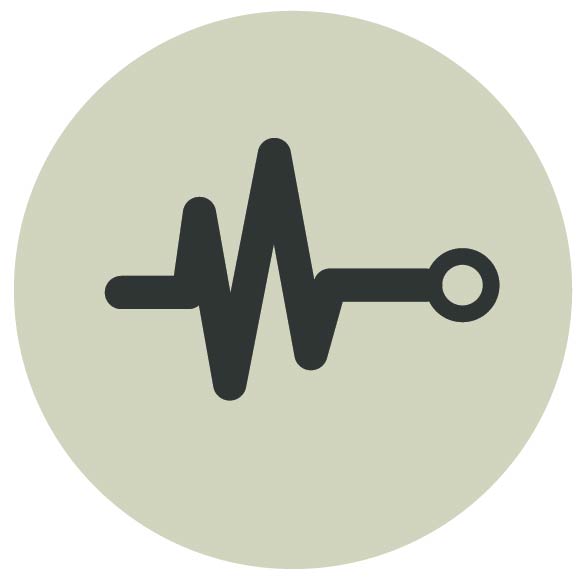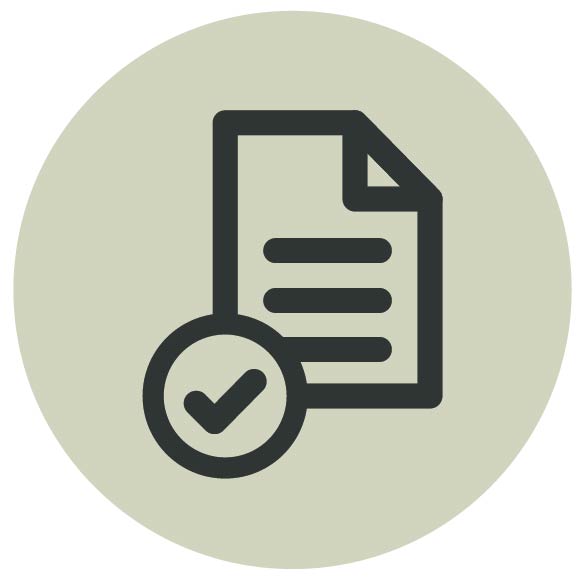Dysautonomia refers to a group of medical conditions that affect the autonomic nervous system (ANS), which is responsible for controlling many involuntary bodily functions. The autonomic nervous system regulates things like heart rate, blood pressure, digestion, body temperature, and other essential processes that occur automatically without conscious control.
In dysautonomia, there is a dysfunction or impairment in the autonomic nervous system, leading to disruptions in the normal functioning of various organs and systems in the body.
The content on this page is provided solely for information purposes and provides an overview of the subject matter covered. It is not a substitute for professional medical advice, diagnosis or treatment. If you think you have Dysautonomia, please seek further information. The information on this page is subject to change without notice.
Dysautonomia is an invisible disability
 There are around 15 forms of dysautonomia
There are around 15 forms of dysautonomia People of any age, gender or race can be impacted
People of any age, gender or race can be impacted There is no cure for any form of dysautonomia at this time.
There is no cure for any form of dysautonomia at this time. Over 70 million people worldwide live with various forms of dysautonomia
Over 70 million people worldwide live with various forms of dysautonomia Over 65% of people with Long-Covid have developed dysautonomia
Over 65% of people with Long-Covid have developed dysautonomia
Dysautonomia refers to a group of conditions, including but not limited to:
- Postural Orthostatic Tachycardia Syndrome (POTS): POTS is one of the most commonly diagnosed forms of dysautonomia. Estimates suggest that POTS affects anywhere from 1 to 3 million people in the United States alone, and it is believed to be more prevalent in young women.
- Neurocardiogenic Syncope: This condition is characterized by fainting spells due to sudden drops in heart rate and blood pressure. The prevalence of neurocardiogenic syncope is also not well-documented globally.
- Pure Autonomic Failure (PAF): PAF is a rare disorder characterized by the degeneration of the autonomic nervous system. It is estimated to affect around 1 in 100,000 people.
- Multiple System Atrophy (MSA): MSA is another rare and progressive neurodegenerative disorder affecting the autonomic nervous system. Its prevalence is estimated to be around 1 in 50,000 to 100,000 individuals.
The causes of dysautonomia can vary and may include genetic factors, autoimmune disorders, nerve damage, infections, or other underlying medical conditions.
Symptoms of Dysautonomia
Dysautonomia can result in a wide range of symptoms that may vary among individuals but commonly include:
- Dizziness
- Difficulty standing
- Palpitations or tachycardia
- Difficulty concentrating
- Fatigue
- Nausea or digestive system problems
- Breathing difficulties
There can also be a number of other related symptoms such as:
- Temperature regulation difficulties: Sensitivity to temperature changes, excessive sweating, or difficulty adjusting to temperature changes.
- Neurological symptoms: Headaches, brain fog, difficulty concentrating, or cognitive impairment.
- Cardiovascular issues: Fluctuations in heart rate, low blood pressure, rapid heart rate, or palpitations.
Living with Dysautonomia and challenges faced in daily life
Living with Dysautonomia can present many challenges for the individual with the condition. People with Dysautonomia may experience a range of physical and emotional symptoms that can impact their ability to work, study, or engage in social activities. Some of the challenges that people with Dysautonomia may face include:
- Dysautonomia can cause a wide range of physical symptoms: dizziness, fainting, rapid heart rate, digestive issues, temperature intolerance, fatigue, and exercise intolerance which make daily activities such as grocery shopping, cooking, or cleaning difficult.
- People with Dysautonomia may experience limitations in their ability to work, study, socialise, or participate in physical activities which can lead to feelings of isolation and loneliness.
- Obtaining an accurate diagnosis for dysautonomia can be a challenge. Many individuals with dysautonomia experience delays in diagnosis and may undergo numerous tests and consultations with various healthcare providers before receiving a proper diagnosis. This uncertainty can prolong their journey to finding appropriate treatment and support.
- Dysautonomia is a relatively unknown condition. This lack of awareness can lead to misunderstandings, misinterpretation of symptoms, and difficulties in accessing appropriate medical care and support systems.
- Living with chronic symptoms and navigating the challenges of dysautonomia can take a toll on a person's mental health. It is not uncommon for individuals to experience anxiety, depression, stress, and frustration related to their condition.
- Dysautonomia can impact social relationships, as individuals may need to make lifestyle adjustments, cancel plans due to symptoms, or limit their participation in certain activities. Finding understanding and support from family, friends, and peers is crucial.
Assistance and support you can offer
Every non-visible condition and impairment is experienced differently, and it is not possible to generalise the recommendations below for all. Offering assistance and support to someone with Dysautonomia can make a significant difference in their quality of life. By being understanding, patient, and supportive, you can help them manage the challenges they go through and stay connected to the world around them.
Here are some ways you can support someone with Dysautonomia
- Find out about Dysautonomia and be aware of what the symptoms may be
- Do not make assumptions about how Dysautonomia affects someone - find out from them how you can support them
- Be aware that the person with Dysautonomia may need to re-arrange or cancel plans depending on the severity of their symptoms.
- Regularly check in with them. Dysautonomia can also lead to mental health problems such as depression and anxiety.
Sources
Dysautonomia International: http://www.dysautonomiainternational.org
Dysautonomia Support Network: https://www.dysautonomiasupport.org/
News Medical: https://www.news-medical.net/news/20220501/Study-finds-6725-of-individuals-with-long-COVID-are-developing-dysautonomia.aspx
National Library of Medicine: https://www.ncbi.nlm.nih.gov/pmc/articles/PMC9198643/
Look out for these Sunflower icons
 I cannot stand for long periods of time
I cannot stand for long periods of time I have a hidden disability
I have a hidden disability I may need a place to sit down and rest
I may need a place to sit down and rest
The content on this page is provided solely for information purposes and provides an overview of the subject matter covered. It is not a substitute for professional medical advice, diagnosis or treatment. If you think you have Dysautonomia, please seek further information. The information on this page is subject to change without notice.


